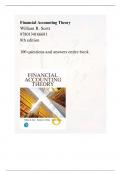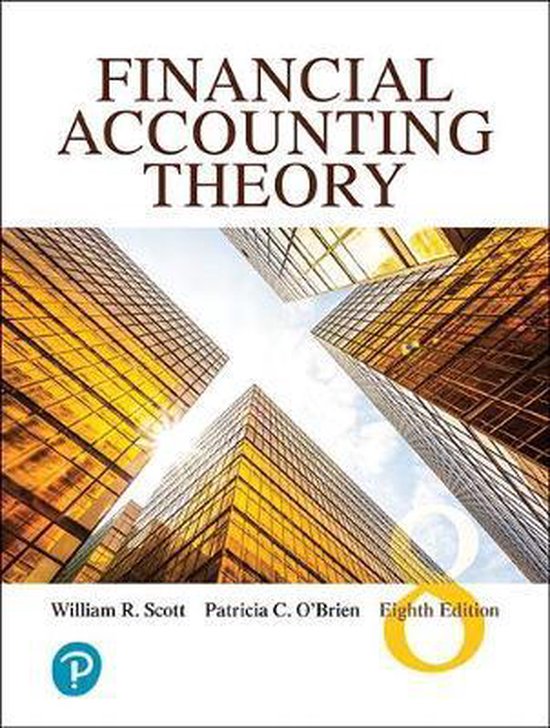Exam (elaborations)
Financial Accounting Theory 8th ed. / William R. Scott / 100 questions and answers, new 2024
These are 100 open questions and answers about the entire book Financial Accounting Theory the 8th ed. Please see the content page for all chapters that are covered. The questions go from general to more complex.
[Show more]




